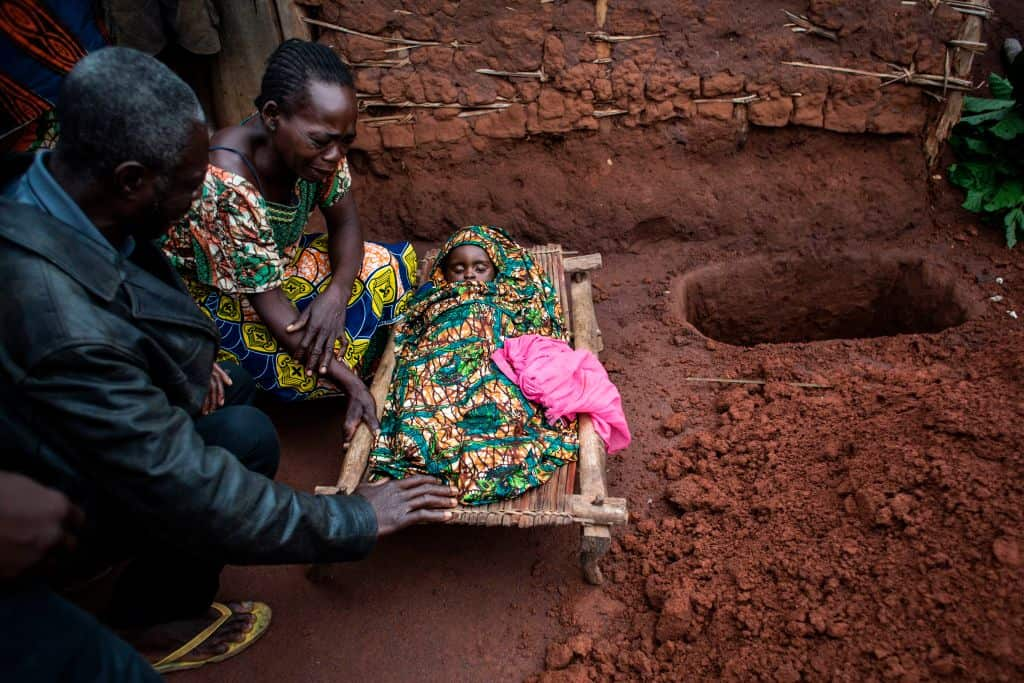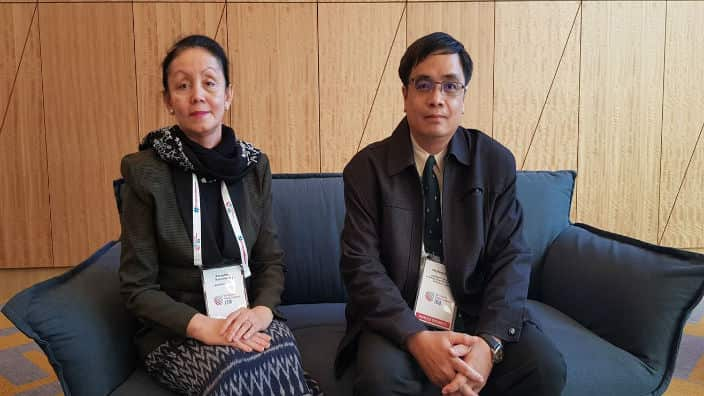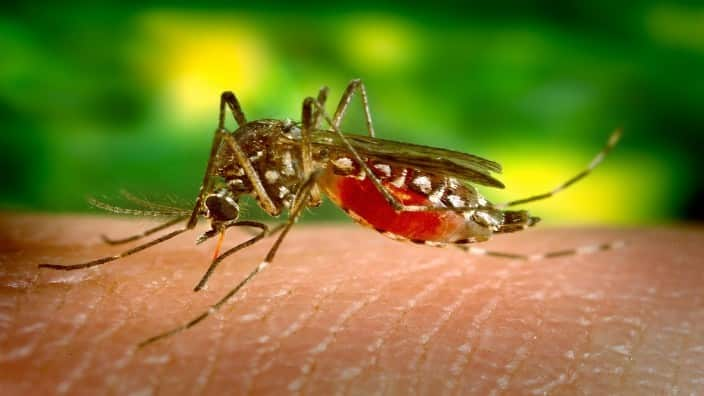World Malaria Day may have passed, but the threat from this life-threatening disease still remains urgent for half the world's population.
According to the QIMR Berghofer Medical Research Institute more than 250 million people have been affected worldwide, with around a million succumbing to the fatal illness - most of them children under five.
At the inaugural World Malaria Congress in Melbourne in earlier this month, scientific researchers, healthcare professionals and representatives from both government and charity bodies came together to to share ideas and strategies to develop tools for eradicating malaria.

Professor James McCarthy, a senior researcher with the QIMR Berghofer Medical Research Institute, said the Australian Department of Foreign Affairs and Trade (DFAT) has contributed $16 million to Australian research projects for developing a drug to combat malaria.
In one experiment, healthy people were deliberately infected with malaria to test the drugs and discovered it killed all the parasites in their bodies.
"That is very exciting, and also leads us to the idea that we can now test these antimalarial drugs in some of the countries where where malaria is a big problem," Mr McCarthy said.
"Once those field tests have been completed, we hope that those drugs can be put on the market to treat drug resistant malaria.”
However, that goal could still be some time away, scientists think.
“I would say it is going to take five years.... We need to do a lot more work before they are ready to be used... to make sure that these drugs do what they're meant to do, and also that they are safe to give to people," Mr McCarthy said.
"Children and pregnant women [in particular] are the two groups who suffer most from malaria and we need to make sure that these drugs are safe for those populations."
Listen to Professor James McCarthy interview here:

Dr Mayfong Mayxay is the Vice-Dean for Research at the Faculty of Postgraduate Studies Lao University of Health Sciences said there are three main purposes why his team attended the first World Malaria Conference: to exchange ideas with world malaria experts and to present the findings from his clinical trial.
Laos also has two delegations especially the Deputy of National Institute of Public Health, Dr. Sengchan Kounnavong and Associate Professor Mayfong Mayxay, Mahidol Oxford Tropical Medicine Research Unit which attend this conference.

Australian Foreign Minister Julie Bishop said that 'China can bring its 5000 cases into zero by 2010 and in on track to malaria free by 2020, however, Papua New Guinea 's 20 percent of its 8 million population has contracted 6000 cases or death due to malaria in 2016 according to WHO's report. But the most worrisome is the endemic of sub-Mekong region which malaria is still spreading'.
Listen to Dr. Sengchan Kounnavong and Dr. Mayfong Mayxay interview in Lao here:
“The end of 2012 Malaria case has been dropped and stable but all of the sudden it has increased rapidly, therefore our research has show that mobility of people who came from no endemic area are infected and spread further to their local communities when they return home after the project development. Plus other experts from neighboring countries are also the incubators therefore, many countries that border together have to join force to deal with this matter,” said Dr. Kounnavong.
However she said that there are two main strategies in Laos both from Lao government and local authorities including local health volunteers have very important roles to carry out these prevention, early diagnose and treatment to prevent further spreading, but the whole region of South East Asian need to joint force in order to handle this problem.
Dr Mayxay has collaborated with Mahidol and Oxford Universities to carry out clinical trial and laboratory research to guide Laos National antimalarial drug policy which he has done clinical pilot trial in Savanakhet Southern Laos which resulting changes the treatment from chloroquine and sulphadoxine pyrimethamine to ACTs and Arthemitehr-lumefantrine in 2005. And this new malaria drug has been utilized since.

Dr. Mayxay said that "former Lao Prime Minister has signed a declaration of eradication of malaria in Laos by 2030 when ASEAN members meeting at Naypyidaw, Burmas. For the first phase, from 2016-2020 there are three main strategies, first is to reduce malaria case, second is to reduce the effect from malaria drug resistance, and thirdly, is to eradicate malaria in northern Laos where malaria is stable and then from 2020-2025 is to reduce falciparum malaria and from 2025 -2030 we want make Laos free from malaria.”
Dr. Mayfong Mayxay said that there are two different ways to prevent malaria, in personal and preventing malaria spreading from sick person to the other healthy person.
He recommends that Lao people to sleep under mosquito net which Lao authorities provided when they sleep at home or sleeping out in the bush doing farming. Second is to diagnose or detect malaria early where local health volunteers jumps in. There are tools that can help they diagnose within minutes and give treatment strait away or send that person off to local, district or provincial hospital for further treatment.
Dr. Sengchan Kounnavong said to Lao diaspora or Lao people who want to travel to Laos will need to consult with their doctors and get prevention first or if they forgot to there are services available in Laos, so they can travel and worry free from contracting malaria while touring visiting Laos.
More readings:
2. https://foreignminister.gov.au/releases/Pages/2018/jb_mr_180702.aspx
4. https://www.thelancet.com/journals/langlo/article/PIIS2214-109X(13)70008-1/fulltext
5. http://www.who.int/malaria/publications/country-profiles/profile_lao_en.pdf
6. https://www.qimrberghofer.edu.au/diseases/malaria/
7. http://www.who.int/malaria/media/world-malaria-day-2018/en/
8. http://journals.plos.org/plosone/article?id=10.1371/journal.pone.0175984
Call to have a chat with SBS Radio Hmong Program on + 61 3 9949 2259 or sent your comments to comments@sbs.com.au.





